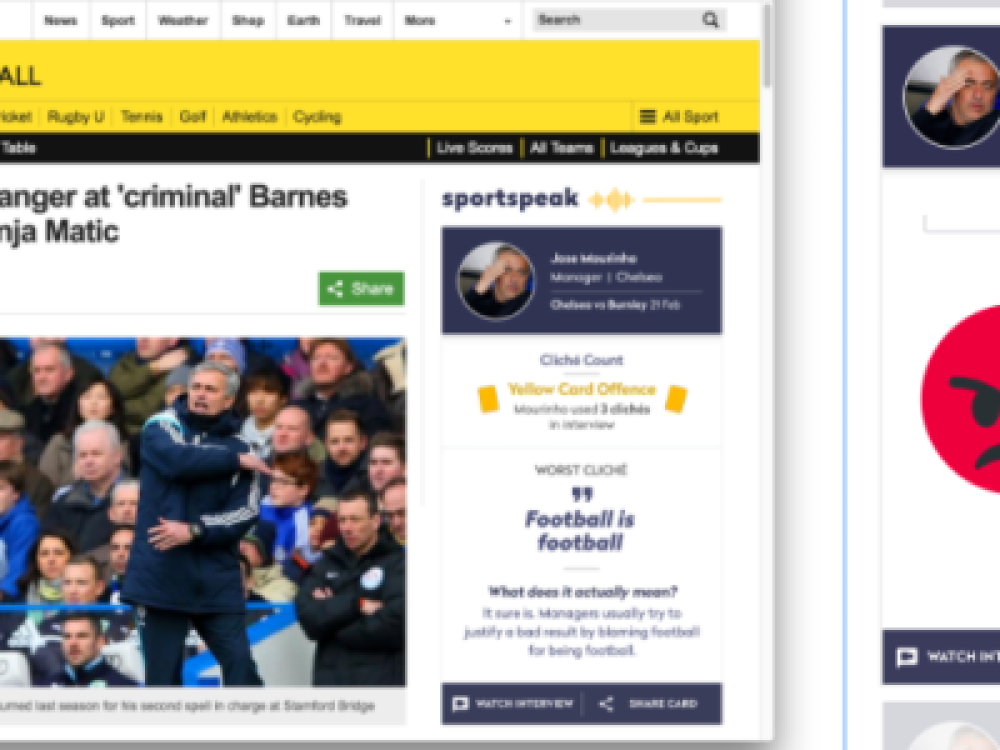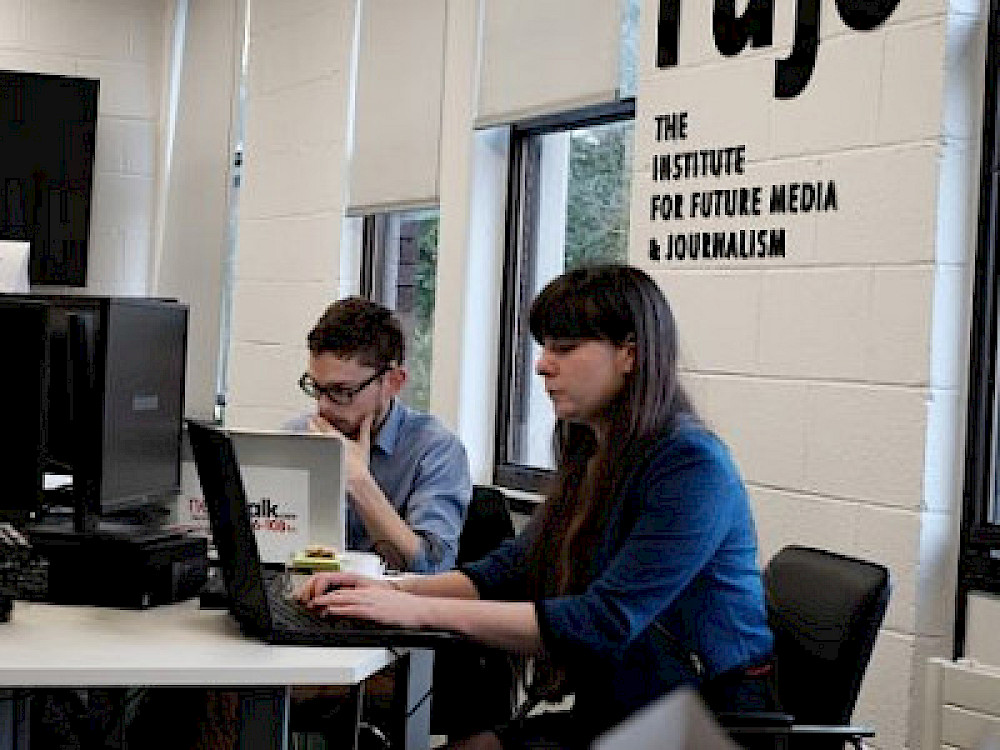This November, FuJo is teaming up with the Global Editors Network to host an Editors Lab on sports journalism. With support from Google News Lab, Editors Labs invite teams of developers, journalists and designers from leading newsrooms to build news prototypes.
When asked to come up with a theme for the Dublin lab, sport seemed an obvious choice. From dominant disciplines like football and GAA to minority sports like athletics, sports coverage is thriving on digital innovations.
It’s almost hard to imagine that people once had to wait for the morning newspaper to find out the results of matches held the day before. Or that the pixelated updates of teletext services like BBC Ceefax and RTÉ Aertel were once a revelation for sports fans. Now, the smartphone is at the centre of a sprawling sports media universe offering fans unprecedented access to rich content in real-time.
New technologies have been hugely disruptive to traditional mass media but sports media is a peculiar case. Sport and the culture of fandom that surrounds it supports an enormous ecosystem of coverage from traditional and new media alike.
Live sports attract huge audiences for broadcasters and online streaming services and while the games themselves may not take very long, interest in sport supports a vast array of ancillary content on broadcast, online and social media. Social media, in particular, creates new layers of connection for fans through two-screen engagement. More than half of those who watch live sport in Ireland do so while checking in with social media and almost half of all TV-related tweets in the US are about sports coverage (Nielsen 2015).
The Future of Sports Journalism: With content flowing from betting outlets, sports organisations and fans themselves, the traditional role of the sports journalists is undermined to some extent. Twenty years ago, sports fans were largely dependent on journalists for information. Now, journalists have powerful competitors as the business of sport booms – it’s a £20bn-a-year industry in the UK - and digital technologies create new distribution possibilities.
Traditional media face competition from digital-born outlets developed by fans. More significantly, major clubs and sporting organisations are bypassing journalists to carve out their own media channels offering access to interviews and behind-the-scenes footage for a fee.
Last year, a number of high-profile Premier League Clubs restricted journalists’ access to players. Swindon Town banned the media from press conferences, Glasgow Rangers banned senior BBC reporters, and Newcastle United banned a Channel 4 News reporter for even asking about the clubs use of media bans. As Newcastle later admitted to fans, it wants to “control and reinforce the positive messages the club wished to deliver”.
Given the kind of money involved, the issue of rights is another factor shaping sports coverage. Huge media outlets, such as Sky Sports and Turner Sports, benefit from having the financial clout to do deals with rights holders. Last year, Sky and BT Sport paid a record £5.136bn for live Premier League TV rights for three seasons. Following this, Sky completed a deal with Snapchat to launch customized apps on Snapchat Discover.
For all media outlets adaptation is key, which is why the GEN Editors Lab specifically requires that newsrooms send teams composed of people with skills in journalism, web development and design.
For example, innovating with mobile apps and widgets allow media to extend and personalise their existing coverage while social media presents new ways to engage with audiences. Data analytics, once the preserve of US sports, are now more descriptive and in-depth creating a need for data-savvy journalists who can process and present information in clear and meaningful ways.
The Dublin Editors Lab asks newsrooms to think about how they can turn the passion of sports fans, the abundance of sports data, and the opportunities of new technologies into dynamic and innovative sports coverage. Such concerns are by no means limited to sport. Rather, sport seems a fruitful testing ground for innovation in other types of news coverage.
The Dublin Editors Lab will be held in DCU on November 25th and 26th. As a limited number of places are available, newsrooms hoping to participate should contact Sarah Toporoff (stoporoff[at]globaleditorsnetwork.org) or Eileen Culloty (eileen.culloty[at]dcu.ie)
Subscribe to FuJo’s newsletter.





